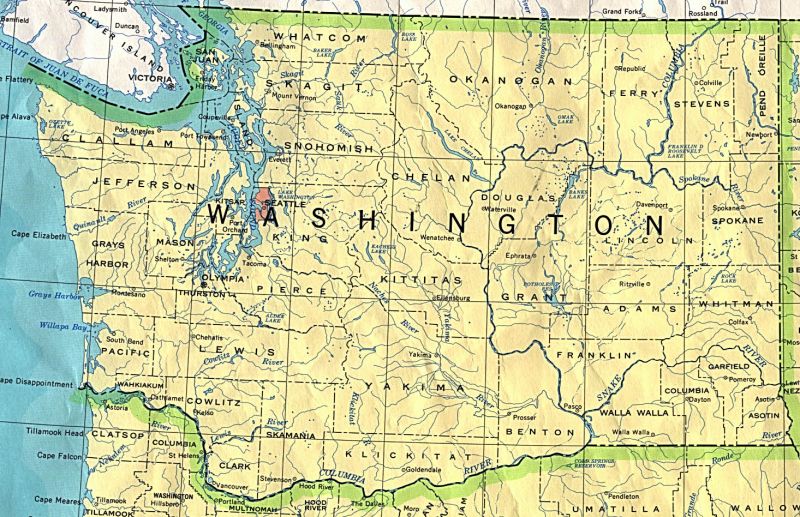 US authorities report a record flood of unaccompanied minors crossing the southern border, a wave that has been escalating since 2011. About 52,000 have arrived since October, about 112% more than the entire prior year, Alejandro Mayorkas, deputy secretary of the Homeland Security Department, said June 20 in a conference call with reporters. Up to 90,000 are expected to come in 2014, according to the White House—more than twice as many as last year, and three times as many as in 2012. President Barack Obama this month directed the Federal Emergency Management Agency to address the "urgent humanitarian situation," and asked Congress for funding. Courts and social-service agencies have been overwhelmed, and guidelines on processing and detention thrown into disarray, Bloomberg reports. "It's been a humanitarian crisis since long before Obama called it that," said Kimi Jackson, director of the South Texas Pro Bono Asylum Representation Project, which aids children in immigration court.
US authorities report a record flood of unaccompanied minors crossing the southern border, a wave that has been escalating since 2011. About 52,000 have arrived since October, about 112% more than the entire prior year, Alejandro Mayorkas, deputy secretary of the Homeland Security Department, said June 20 in a conference call with reporters. Up to 90,000 are expected to come in 2014, according to the White House—more than twice as many as last year, and three times as many as in 2012. President Barack Obama this month directed the Federal Emergency Management Agency to address the "urgent humanitarian situation," and asked Congress for funding. Courts and social-service agencies have been overwhelmed, and guidelines on processing and detention thrown into disarray, Bloomberg reports. "It's been a humanitarian crisis since long before Obama called it that," said Kimi Jackson, director of the South Texas Pro Bono Asylum Representation Project, which aids children in immigration court.

 In what could turn out to be a landmark case, the
In what could turn out to be a landmark case, the  In a dramatic early morning raid June 4, some 400 NYPD cops wearing bullet-proof vests stormed the Manhattanville and Grant housing projects in Harlem, arresting scores in what was boasted as the largest gang case in New York City history. In what was dubbed Operation Crew Cut Initiative, police commissioner
In a dramatic early morning raid June 4, some 400 NYPD cops wearing bullet-proof vests stormed the Manhattanville and Grant housing projects in Harlem, arresting scores in what was boasted as the largest gang case in New York City history. In what was dubbed Operation Crew Cut Initiative, police commissioner  A Georgia family and state lawmakers are demanding a federal investigation into the case of a toddler severely injured by a flash grenade during a drug raid May 28. Bounkham Phonesavanh—19 months old, and nicknamed Bou Bou—remains in a medically induced coma at the Grady Memorial Hospital burn unit in Atlanta. Habersham County District Attorney Brian Rickman told AP his office is investigating to determine whether any officers will face criminal charges. Police said officers were searching for a potentially armed drug suspect at the home and did not know children were inside when they broke down the door and threw in a flash grenade. The grenade landed in the sleeping boy's playpen, according to both authorities and the Phonesavanh family.
A Georgia family and state lawmakers are demanding a federal investigation into the case of a toddler severely injured by a flash grenade during a drug raid May 28. Bounkham Phonesavanh—19 months old, and nicknamed Bou Bou—remains in a medically induced coma at the Grady Memorial Hospital burn unit in Atlanta. Habersham County District Attorney Brian Rickman told AP his office is investigating to determine whether any officers will face criminal charges. Police said officers were searching for a potentially armed drug suspect at the home and did not know children were inside when they broke down the door and threw in a flash grenade. The grenade landed in the sleeping boy's playpen, according to both authorities and the Phonesavanh family. University of Kentucky agronomy researchers on May 27 planted a small hemp plot at
University of Kentucky agronomy researchers on May 27 planted a small hemp plot at  In an unprecedented 219-189 floor vote late May 29, the House of Representatives approved the end of funding for Department of Justice (DoJ) enforcement in medical marijuana states. Advocates are hailing the vote as a major victory that signals a shift in the approach Congress is taking on this issue. The vote was on Amendment No. 25 to the Commerce, Justice & Science (CJS) appropriations bill. One hundred seventy Democrats and 49 Republicans voted in favor of the amendment. "This Congressional vote is a huge victory for patients," said Steph Sherer, executive director of Americans for Safe Access. "No longer will we have to look over our shoulder and worry when the next raid or indictment will prevent us from safely and legally accessing our medicine. This is a game-changer that paves the way for much more policy change to come."
In an unprecedented 219-189 floor vote late May 29, the House of Representatives approved the end of funding for Department of Justice (DoJ) enforcement in medical marijuana states. Advocates are hailing the vote as a major victory that signals a shift in the approach Congress is taking on this issue. The vote was on Amendment No. 25 to the Commerce, Justice & Science (CJS) appropriations bill. One hundred seventy Democrats and 49 Republicans voted in favor of the amendment. "This Congressional vote is a huge victory for patients," said Steph Sherer, executive director of Americans for Safe Access. "No longer will we have to look over our shoulder and worry when the next raid or indictment will prevent us from safely and legally accessing our medicine. This is a game-changer that paves the way for much more policy change to come." Gov.
Gov.  Cannabis cultivation is emerging as an issue in the American West's interminable conflicts over control of water. On May 20, the US
Cannabis cultivation is emerging as an issue in the American West's interminable conflicts over control of water. On May 20, the US 





Recent comments
1 week 4 days ago
1 week 4 days ago
4 weeks 5 days ago
5 weeks 4 days ago
9 weeks 4 days ago
13 weeks 3 days ago
17 weeks 3 days ago
18 weeks 1 day ago
28 weeks 1 day ago
32 weeks 2 days ago